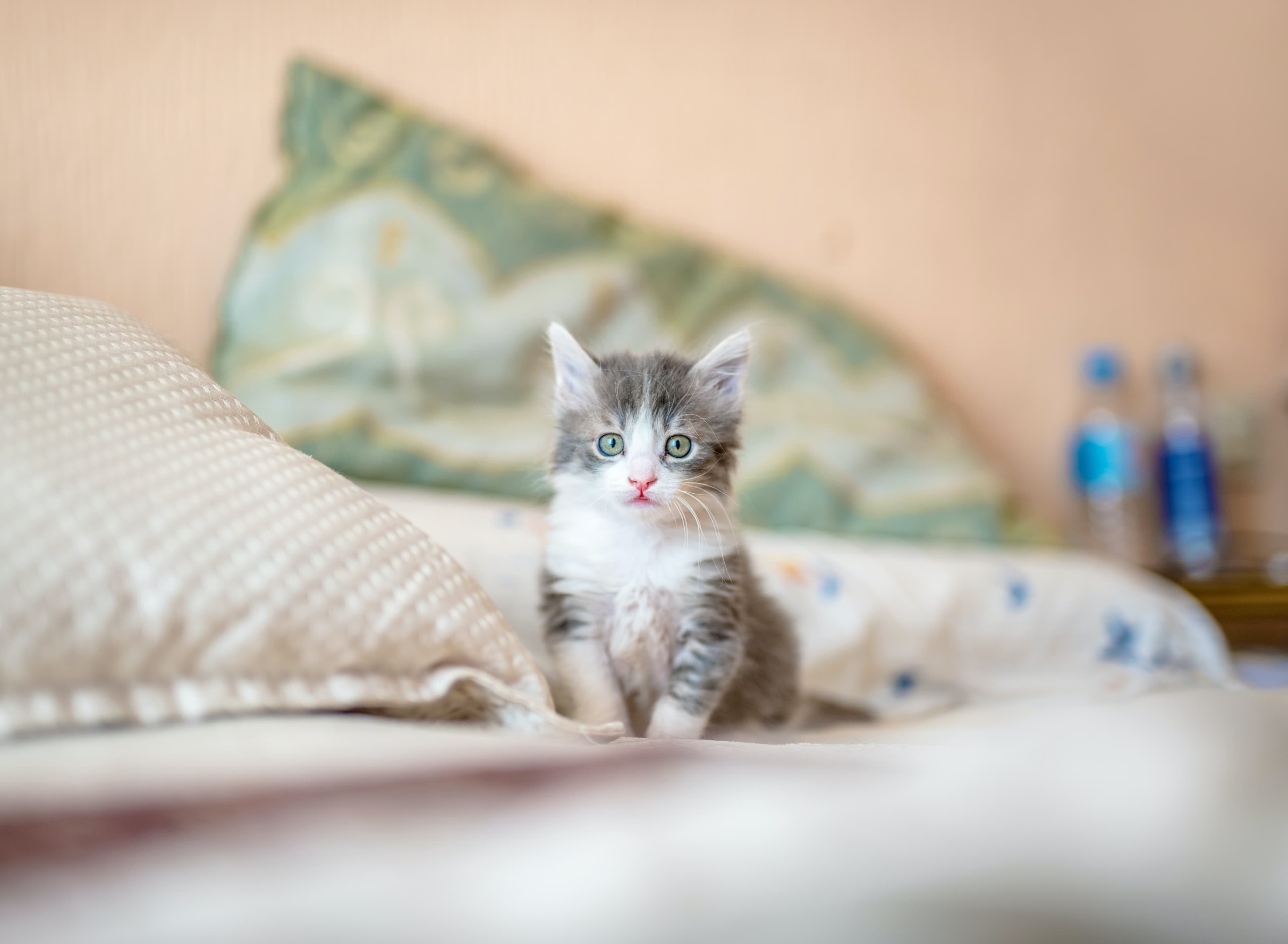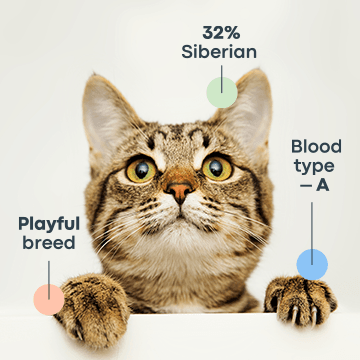Imprinting isn’t just for birds—it’s a fascinating bond that forms between animals and their caregivers, and yes, your cat might have imprinted on you too! In nature, ducklings famously imprint on the first moving figure they see, believing it to be their “mom.” With cats, imprinting takes on a more emotional and behavioral twist. It means your feline friend feels safe, connected, and sees you as their trusted human. How do you know? Here’s a quick checklist:
Follows you around. Even to the bathroom!
Headbutts and rubs. Their way of saying, "You’re mine!"
Slow blinks. Cat-speak for “I love you.”
Prefers your company. You’re their ultimate nap buddy.
Brings you gifts. From toys to...ahem, less appealing surprises.
These quirks show your cat’s unique way of saying, “You’re my person!” Does your kitty tick most of the boxes? Congrats—you’re officially their favorite.
Purring and Kneading: A Display of Trust and Contentment
Kittens display a range of behaviors that indicate a deep level of trust and affection, commonly seen in their interactions with their "mommy cat." One of the most obvious signs is purring and kneading. This behavior, where kittens press their paws in and out on soft surfaces, is reminiscent of cat imprinting. The rhythmic purring, often accompanied by kneading, signifies contentment and security.
When your kitten kneads your lap, consider it a sign of ultimate trust, akin to the trust shared between a mother cat and her kittens. This behavior is not just a sign of affection; it's a sign that your kitten sees you as their parental figure.
Following You: A Sign of Security and Attachment
Have you ever noticed your kitten following you from room to room? This behavior is more than just curiosity; it's a sign your kitten has imprinted on you.
Kittens, like many animals, seek security and comfort. When they choose to stay close to you, it indicates their trust and attachment. Think of it as your kitten saying, "You're my safe space."
Head Butting and Cheeking: Affectionate Gestures
Another endearing behavior is head butting and cheeking. When your kitten rubs their head against you, they are not just seeking attention. This is another important for young animals gesture of affection.
Deepening the Bond
Sleeping Near You: Indicating Trust and Comfort
One of the most heartwarming signs is when your kitten chooses to sleep near you. In the wild, cats are vulnerable when they sleep, so choosing to sleep next to you is a big deal. It's their way of saying, "I trust you completely."
Grooming: A Sign of Deep Affection and Bonding
Grooming is a significant aspect of cat behavior. When your kitten licks or grooms you, they clearly show deep affection. In the cat world, grooming strengthens bonds, and when your kitten grooms you, it's akin to saying, "You're part of my family."
Meowing and Communication: Seeking Attention and Care
The way kittens communicate with us also holds clues. If your kitten meows at you in different tones, they are trying to engage in a conversation. This behavior reflects their trust and the bond they share with you.
Additional Signs of a Kitten's Affection
Your kitten might be a little copycat—literally! If they mimic your actions, like curling up when you do or “talking” back to you, it’s a sure sign of love. And that belly flop? It’s pure trust. Showing their tummy says, “I feel safe with you—now scratch, please!”
Why Does Your Cat Slow Blink?
When your cat gives you that slow, dreamy blink, it’s not boredom—it’s love. In the feline world, slow blinking is the ultimate trust signal, like blowing a kiss. It says, “I feel safe with you.” Add in some gentle grooming, and your cat’s basically saying, “You’re family.”
Socialization Insights
Kittens have a critical imprinting window between 2-7 weeks old when they’re most open to forming bonds and learning about their world. During this time, gentle handling, play, and positive experiences lay the foundation for a trusting, affectionate adult cat.
Adopting an older cat? Don’t worry—patience and consistency work wonders! Spend time at their level, speak softly, and let them approach you first. Offer treats and interactive toys to build trust. Remember, bonding takes time, but with love and understanding, even the shyest cat can grow into a snuggle bug who sees you as their safe haven.
How to Strengthen Your Bond with a Kitten
Strengthening your bond with a kitten involves several key practices. Playtime is magic for bonding! Use wand toys or laser pointers to tap into your kitten’s playful side. For shy kittens, try calm techniques like soft talking and slow blinking to build trust. Cuddly kittens? Gentle petting and cozy lap time seal the deal. Tailor bonding to their unique personality!
Provide a Comfortable Environment
Your kitten needs a cozy space to feel safe. A soft bed, a warm blanket, and a few hiding spots create the perfect sanctuary. Cats thrive in environments that feel secure, so don’t forget to give them their quiet time.
Spend Quality Time Together
Set aside time daily to play and cuddle. Wand toys or feather teasers bring out their playful side, while snuggles after a meal build trust. Even just sitting nearby can show them you’re there.
Positive Reinforcement
Reward good behavior with treats, gentle praise, or pets. For example, if they come to you on their own, acknowledge it with affection—it reinforces their confidence.
Stimulation
Interactive toys, scratching posts, or puzzle feeders keep your kitten mentally sharp and happy. Rotate toys to keep things exciting!
Patience and Gentleness
Not all kittens warm up quickly. If yours is shy, go slow. Let them approach first and use calming gestures like slow blinking.
Routine Care and Attention
Daily grooming and feeding rituals build trust. It’s more than care—it’s bonding time. Even brushing can turn into a love fest!
Frequently Asked Questions
How do you tell if a cat is giving you a love bite or an angry/annoyed bite?
A love bite is gentle and doesn’t break the skin—it’s your cat’s quirky way of showing affection. Angry or annoyed bites tend to be quicker, harder, and often come with hissing or a swishing tail.
Do cats imprint on one person?
Yes, many cats form a deep bond with one person, often the one who meets their needs most consistently. However, cats can still share affection with other family members.
My cat is imprinted on my partner, how do I gain a better relationship with the cat?
Spend quality time with your cat by offering treats, playing interactive games, and respecting their space. Patience is key—gradual trust-building will help strengthen your bond.





